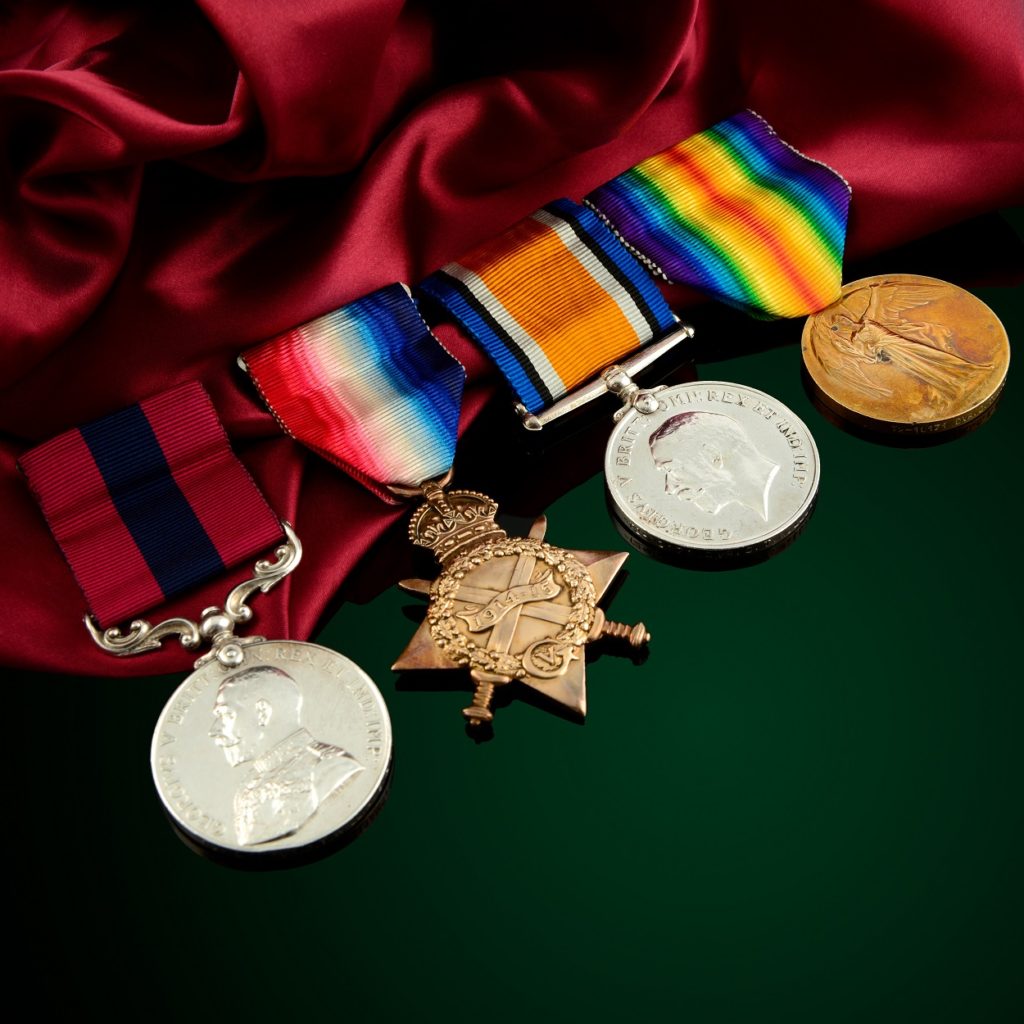The Distinguished Conduct Medal (D.C.M) is the oldest British award for gallantry and the second-highest award for gallantry in action. Prior to Queen Victoria’s establishment of the D.C.M in 1854 during the Crimean War, there was no official medal for individual acts of bravery in the Army.
In 1894, Queen Victoria authorised Colonial governments to adopt the D.C.M for award to local forces. Military personnel throughout the Empire also received the D.C.M.
The Crown presented over 25,000 Distinguished Conduct Medals during the Great War, and approximately 1,900 during WWII. The Military Medal was introduced in 1916 as an alternative, lower award. This newer medal preserves the D.C.M as awardable for only exceptional acts of bravery.
Daniel Thomas Williams' Distinguished Conduct Medal
Daniel Thomas Williams was born in 1892, in Llantrisant, Wales, to carpenter Thomas Williams and midwife Jane née Evans. After serving as a driver in the Army Services Corps, he was put forward for the D.C.M. Dr Willy Davies, who was the local GP, presented him with the medal in 1919 for;
‘Conspicuous gallantry and devotion to duty. He carried out his transport duties very satisfactorily, and during heavy shelling he frequently volunteered to take rations forward. He displayed a fine example of courage and greatly inspired his comrades’.
Distinguished Conduct Medal at auction
Williams’ pension ledger, dated the same year as his D.C.M award, evidences his retirement from military action. The ledger notes his disability, ‘debility’, as 50% attributable to service. ‘Debility’, is an ambiguous term which can allude to a range of ailments. Sometimes, it can refer to what is now recognised as Post-Traumatic Stress Disorder (PTSD).
Lot 370 - Daniel Thomas Williams' Distinguished Conduct Medal & Great War Trio medal group.
Price Realised: £637.00
This lot attests to Williams’ commitment and courage in his role as a driver, and a military career cut tragically short.

We cannot see from public records if he was injured during one of his several acts of courage. We also don't know if his devotion to duty exacerbated a pre-existing condition. Regardless, Williams' D.C.M is evidence of the exceptional sacrifices that he, and millions of other young men, made during the Great War.












